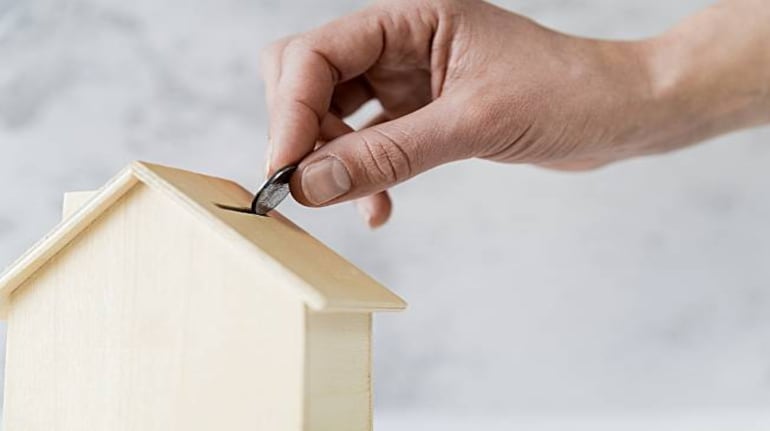Experts said the segment offers relatively lower risks and offers greater scope for diversification. In uncertain times, it also provides for an income stream.
With uncertainty prevailing due to the COVID-19 outbreak and stock market volatility arising out of it, investing in real estate properties may become the new normal. The crisis has highlighted the need for shelter and protection in tough times.
Real estate experts said the segment offers relatively lower risks and offers greater scope for diversification. In uncertain times, it also provides for an income stream.
"In these uncertain times, instead of looking for investments with quick returns, go the traditional way like your grandparents and select conventional investment options like real estate. It may not yield immediate returns but by being less volatile than the market-driven investments, it is definitely a safer bet in the current situation. And it only gets better as the industry is currently witnessing one of the lowest interest rates in a decade," said Poornima Katpadi, founder and investment specialist, Simple Solution 4U.
Track this blog for latest updates on the coronavirus outbreak
-
Warehousing absorption at 6 million square feet in Q12020; recovery in sight for logistics, manufacturing
-
Coronavirus impact | Credai seeks government’s intervention to control cement, steel prices
-
Coronavirus | Construction sector facing daily loss of Rs 30,000 crore; investments in projects to fall 13-30%: KPMG
The investment that has not been hit so hard by this crisis is real estate. Since real estate is not traded on the exchange, prices don’t fluctuate overnight depending on market forces. Investment in real estate has not seen a drastic fall during this time. Instead, it has been strengthened by lower interest rates on home loans and a renewed perception of people towards owning a home, she said.
Also Read: Coronavirus impact | How countries around the world are supporting real estate sectors
A recent report said nearly 59 percent of intending buyers are end-users and out of the total voters favouring real estate, 55 percent are aged between 25-35 years and 68 percent are end-users.
Ready-to-move-in homes have been the preferred choice of end-users in the recent past, a survey by Anarock noted.
Bengaluru, Mumbai and Hyderabad were the most preferred cities for at least 82 percent of the respondent buyers who had already booked properties either just before the coronavirus-induced lockdown or during it, the survey noted.
"The security of owning a physical asset during a coronavirus-like crisis now combines with a rising aversion to high-risk investments. As a result, the demand for residential real estate has increased. Millennials are key demand drivers, their preferences now dictated by the prevailing uncertainties," said Anuj Puri, Chairman - ANAROCK Property Consultants.
The general homebuying sentiment is also guided by cheaper home loan interest rates, he said.
Buyers have also shown a distinct preference for reputed and organised developers with the least project execution risk. These buyers will pay more for quality rather than settle for projects by smaller developers.
Only 25 percent of the population seems to be up for investing in stocks. Gold on the other hand has come up as the third-most preferred choice while fixed deposits have lost their popularity due to reduction in interest rates.
Interestingly, 72 percent buyers still prefer to buy property out of which 44 percent have not yet changed their plans.
"Real estate as a preferred investment choice is well ahead of the other options like gold, stocks and mutual funds. Keeping in mind the uncertainty of stock markets, real estate is undoubtedly the safest investment option for people across segments. It has always been proven that physical assets provide highest sense of security," said Rajiv Gupta, MD, Wave Infratech.
It is also perhaps the right time to invest in property because home loans are being offered at a lower interest rates. Besides, this is the right time to negotiate hard and strike a deal to get the best discounts, said Gupta.
"The residential sector will surely see a rise in demand for ‘owned homes’, especially affordable homes. Besides the millennials who will not prefer to buy rather than rent, the demand for homes will also come from first-time buyers as the working class is experiencing difficulties in paying rent in such times. A lower home loan interest rate is also a driver that will encourage people to own a house," said Gupta
Savills India's fifth research paper in the COVID-19 series titled - 'Capital Flows: A New Roll of the Dice', says that the pandemic has catalysed investment and portfolio reassessments. A gradual reconsideration of investment strategies as well as structures is expected in the post pandemic world.
Also Read: COVID-19 impact | Residential market may stabilise in second half of 2020
According to the survey conducted by Savills India, 75 percent of the respondents feel that return expectations of the investors from the projects in the affordable housing will increase or remain stable, and indicates comparatively higher confidence in India's office spaces.
Follow our full coverage of the coronavirus outbreak hereSpecial Offer: Subscribe to Moneycontrol PRO’s annual plan for ₹1/- per day for the first year and claim exclusive benefits worth ₹20,000. Coupon code: PRO365














